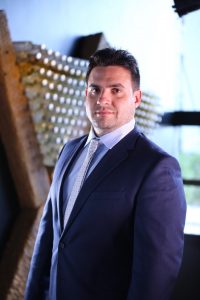São Paulo – Lower costs, reduced travel needs and efficiency. Such are the positive aspects of virtual trade shows, which have taken the place of traditional events as a result of the pandemic. On the other hand, companies in these events face the challenge of persuading clients to buy amid increased competition.

This month saw Calçados Gonçalves, out of Rolante, Rio Grande do Sul, join the online edition of Las Vegas’ Sourcing at Magic show. The Brazilian company sells product to countries including the United States, France, Canada, Portugal, England and Australia. Its commercial manager Deivis Gonçalves said the biggest advantage of the online edition is that costs are lower. “Virtual events are excellent because they require low investment. You spend less on hotels and meals, you don’t have to travel as much, and you get huge networking opportunities. It’s a great way to get exposure.”
The Marketing director with jewelry store Ruth Grieco, Carolina Grieco said the company recently joined the online edition of JCK in Las Vegas via the Precious Brazil industry project, a partnership between the Brazilian Gemstones and Precious Metals Institute (IBGM) and the Brazilian Trade and Investment Promotion Agency (Apex-Brasil). The event has paid dividends for the company, which even set up cameras at its offices to showcase its products.
“It was a new thing for everyone, but the contacts kept in touch even after the show ended. I believe we have made our way into several new markets, because we got lots of quote requests,” says Grieco. She also said that all participants in the trade show had a chance to show off their products and make connections. In the sidelines of the fair, the Precious Brazil project hosted a live stream with the United States-based jewelry industry influencer Benjamin Guttery.
The director of animal nutrition company A&R Nutrição Animal and chairman of the Foreign Trade Chamber at the Brazilian Animal Recycling Association (ABRA), Charbel Syrio reveals that the company has been to two online shows this year: one in Colombia and the other in China. A&R exports products including animal fat and bone flour to countries in Africa and Southeast Asia. He argues that the online model translates into efficiency, and that he’ll often schedule a post-pandemic visit to clients he met during online shows. “I have scheduled visits for the beginning of next year.”
“It enables us to optimize our time. it takes me two days to go to a show in China and then two days to get back to Brazil. This way we get to keep our daily routine and join the show in China late at night. On the other hand, it makes it much harder to reach out to clients, because us Brazilians are really good at doing business face to face.”
The future of the industry

Deivis notes that it has been a while since new footwear is launched online instead of at trade shows. Nevertheless, he claims online shows pose two challenges.
“A trade show is a place at which to meet people, to interact, make contact and shake hands. Without the shows, things become a bit colder. The lower costs of going online means a lot more people are presenting themselves, so you’re at risk of becoming another face in the crowd.” This makes a good salesperson an even more important asset, he says. Deivis doesn’t believe that the days of traditional trade shows are over. He expects a “hybrid approach” instead: “People do want to meet. They used to catch a plane for a meeting, and now they do it online.”
“There’s a lot that’s going to change, not only when it comes to trade shows, but also meetings, lectures… People will still do business one-on-one a lot, but many will go online. That’s the future, and we’re going to keep up. We are witnessing a huge shift in trade,” says Carolina Grieco, who exports items by Ruth Grieco to the United States, Europe, Central and South America, and more recently to countries in the East.
Syrio argues that nothing can take the place of being physically present and actually visiting a client. “At times they will have a need that you can only be aware of by being in their company’s premises. I believe we will see a hybrid approach.”
*Special ANBA report by Marcos Carrieri.
Translated by Gabriel Pomerancblum




